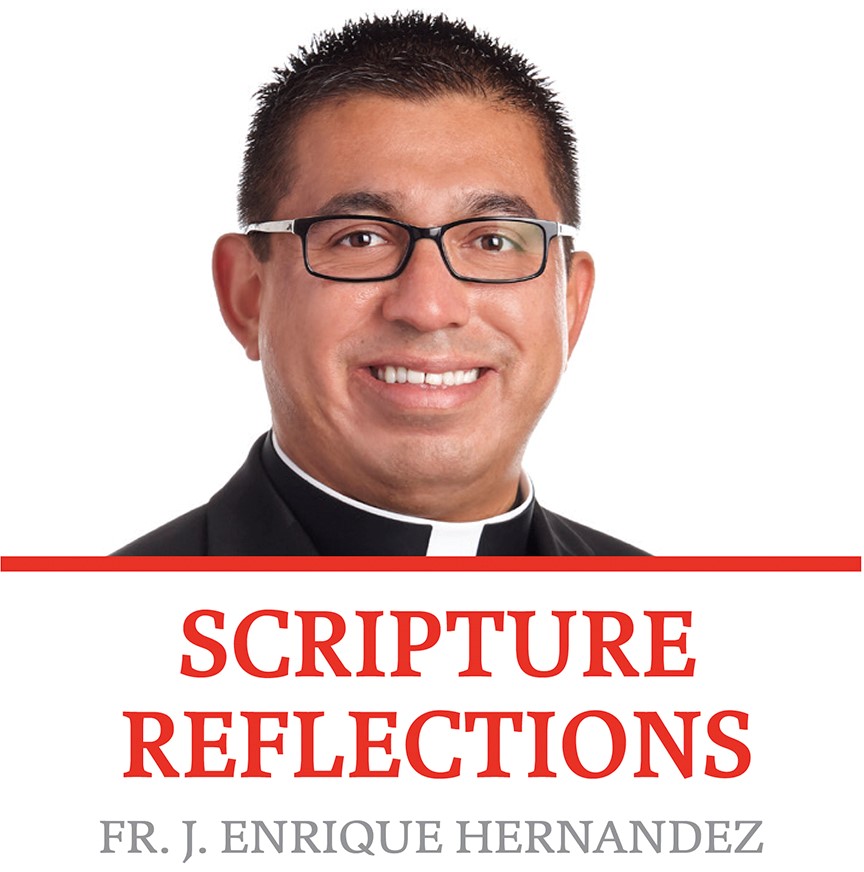Scripture Readings, June 18, 2023
June 18, 2023
Eleventh Sunday in Ordinary Time
Exodus 19:2-6a
Romans 5:6-11
Matthew 9:36-10:8
Happy and blessed Father’s Day.
In the Gospel for the 11th Sunday of Ordinary Time, we see how Jesus was longing to be our Shepherd. “Jesus’ heart was moved with pity for them because they were troubled and abandoned, like sheep without a shepherd.” Jesus observes that the people of Israel in his own day were still God’s sheep, but as we see in Psalm 100, the “appointed shepherds” they had were unfaithful. To name a few: the Herodian kings were impostors, some of the chief priests were political appointees, other leaders only worked for their personal gain. So, our Savior responds by providing shepherds for his people; these new shepherds are the Apostles.
Jesus chose 12 apostles to represent the 12 tribes gathered at Sinai. The Apostles were not only appointed shepherds, but they are granted the status of priests and kings. Pope Benedict XVI pointed out the priestly status is clear in Mark’s Gospel passage where it reads that Jesus “made 12,” taking the terminology of the Old Testament for the appointment of priests, who were “made — made priests from among the common people who were not Levites.” (1 Kings 12:31b)
The royal status is also present as we can see by reading the passage where Jesus tells the Apostles: “Amen, I say to you that you who have followed me, in the new age, when the Son of Man is seated on his throne of glory, will yourselves sit on 12 thrones, judging the 12 tribes of Israel.” (Matthew 19:28)
Jesus appointed the 12 to send them out to the lost sheep of the house of Israel and to declare that the Kingdom of God is at hand or has arrived. This call is extended to their successors, the bishops, who continue their priestly role by celebrating the holy sacrifice of the Mass. The bishops, as successors of the Apostles, both shepherd and sanctify the royal priestly people of God. Through our Baptism we, too, share in the common royal priesthood of Jesus Christ.
Sometimes, when I read the Scriptures or read the lives of the saints, I fall into the temptation to read it as a fairy tale. Do not take me wrong, I believe in it, but sometimes I think “wow, I wish I was there to witness it” or “I wish I could do that.” That is my temptation when I read, “He summoned his 12 disciples and gave them authority over unclean spirits to drive them out and to cure every disease and every illness.” It is pretty amazing that the Lord gave them authority over unclean spirits to drive them out. I always pray for our exorcists and the people who work in exorcisms because that is an important ministry I am very thankful the Lord did not call me to.
Or, as many saints, it would be amazing to have the gift of healing and to heal people from their disease and illness, which still happens in powerful miracles and sometimes in subtle but wonderful ways. But of course, this is not fairy tale terminology; this is real. Of course, Jesus authorizes them to heal the totality of the person (body, soul and spirit), so you might ask how this authority over unclean spirits and to cure every disease and illness is being manifested now?
Through his Church.
The Church continues to show this authority through the Sacraments, especially Baptism, Reconciliation, Eucharist and Anointing of the Sick, an through the works of mercy, expressed in many ways — like hospitals, the Catholic health care systems, Catholic Charities, taking care of the elderly, soup kitchens, food pantries, Catholic elementary and higher education, countless Catholic organizations who serve the poor, etc.
Our priesthood should be expressed by worshiping our only true God and by offering him our bodies as Paul urged us to do: “I urge you therefore, brothers, by the mercies of God, to offer your bodies as a living sacrifice, holy and pleasing to God, your spiritual worship. Do not conform yourselves to this age but be transformed by the renewal of your mind, that you may discern what is the will of God, what is good and pleasing and perfect.” (Romans 12:1-2)
So let all our prayers, works, sacrifices, joys and sufferings of each day be pleasing to God and bring goodness to our neighbors.
As St. Josemaria Escriva said, “You cannot forget that any worthy, noble and honest work at the human level can, and should, be raised to be supernatural level, becoming a divine task.” (The Forge, 1988)

